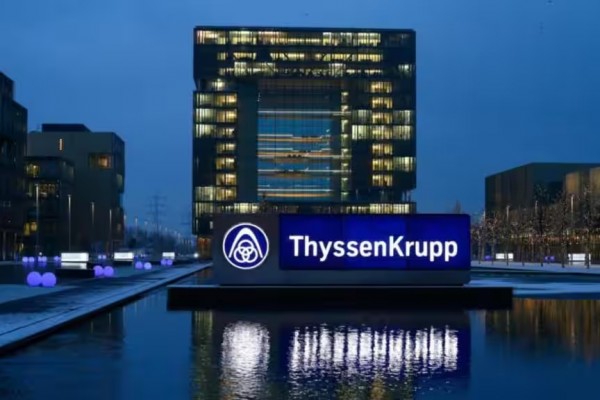Review №27 on Chinese Antitrust News from BRICS Antimonopoly Centre Experts
- Gan Lin's article on competition policy
- Online system for processing M&A applications
- Successes of antimonopoly regulation in cases and figures
- "Green light" for investments in digital
- Digital China Development Report 2022
- Alibaba faces delisting from NYSE
- US requires full access to audit documentation
- Withdrawn civil lawsuit against CNKI
- The prosecutor's office urged to comply with the Antimonopoly law
- SAMR Electronic Evidence Competition
- Uzbekistan unblocks access to WeChat
- Preliminary results of the "cleansing" of the Internet
- 69 online games approved
- Weibo ESG Report 2021
- Launch of Shanghai-Switzerland Stock Connect
- CCTV about Western media's monopoly on public opinion
- Alibaba net profit halved
Gan Lin's article on competition policy
In honor of the entry into force of the new version of the PRC Antimonopoly Law, Deputy Head of SAMR and Commissioner of the National Antimonopoly Bureau Gan Lin published an article on the importance of competition policy in China's main media outlet, the People's Daily. She stressed that the leadership of the Chinese Communist Party is a key guarantee for the effective implementation of anti-monopoly measures. The wording “The leading role of the Chinese Communist Party is recognized in the conduct of antimonopoly work” is not in vain added to the new edition to ensure that antitrust activities constantly move in the right political direction. Gan Lin noted the need to maintain a proper balance between market mechanisms and government action, regulation and development, competition and innovation, efficiency and fairness. She also expressed her hope that China will actively participate in the global management of competition and will not only adopt and follow the rules, but also create new ones and contribute.
Source: SAMR
Online system for processing M&A applications
On August 1st, the day the new edition of the Antimonopoly Law comes into force, SAMR launched an online antitrust processing system for applications for economic concentration transactions. Within its framework, the digitalization of the processes for filing applications for transactions, their consideration and delegation of powers for consideration has been implemented. The one-stop-shop system allows you to download all the necessary materials about the transaction and track the progress of processing in real time, as well as displays the contact information of the responsible persons. All legal documents related to the transaction are automatically sent to applicants, which increases the efficiency and transparency of this administrative procedure.
Source: SAMR
Successes of antimonopoly regulation in cases and figures
In a long article, timed to coincide with the entry into force of amendments to the Antimonopoly Law of the PRC, the Chinese regulator reported on the success of antitrust enforcement. For example, in relation to abuse of market dominance, Qualcomm was fined $975 million in 2015, Tetra Pak $96 million in 2016, $46 million in 2020 three API manufacturers for injectable calcium gluconate, and Alibaba and Alibaba in 2021. Meituan for $2.8 billion and $500 million, respectively. Over the 14 years of the Antimonopoly Law in force, a total of 14 cases of abuse of dominant position in the pharmaceutical sector (collections of $70 million) and 42 cases in the utilities sector (collections of $28 million) were considered.
In addition, given the complex, sensitive nature of the digital economy, the regulator launched case studies of anti-competitive practices in this area, and also intensified tracking of legislative novelties in other countries. According to platform providers, increased enforcement in the platform economy has broadly established a co-regulation mechanism involving authorities, industry associations, the platforms themselves, and the general public.
Source: SAMR
"Green light" for investments in digital
On July 28th, under the chairmanship of Xi Jinping, a meeting of the Politburo of the CPC Central Committee on economic activities for the coming six months was held. Emphasis was placed on the need to "strengthen the driving role of reform policies and opening up to economic development." In this regard, the regulated, healthy and sustainable development of the platform economy will be promoted: it is necessary to complete the elimination of violations on digital platforms, introduce regulation into a “normal” mode and give a green light to investment activity on individual transactions. In regulation, China has long used the "traffic light" mechanism. As JLL's Greater China Chief Economist Bruce Pan notes, while the authorities previously focused only on the "red light", introducing new rules and defining limit lines, now it is proposed to give a "green" to some transactions in the platform economy, which will help address economic problems, create jobs. and stimulate consumption. A “green light” might mean creating a list of industries available for platform investment.
Digital China Development Report 2022
China's Cyberspace Administration has released a report on the development of the digital economy in 2021. The report notes that China has created the world's largest network infrastructure using advanced technologies and a leading digital economy in terms of development. From 2017 to 2021, the digital economy grew from 27 trillion yuan (≈$4 trillion) to 45 trillion (≈$6.7 trillion).
At the end of 2021, there were 1.43 million 5G base stations in China, accounting for over 60% of the global total. Broadband coverage covers 100% of administrative villages and villages involved in poverty eradication projects. China also ranks first in the world in terms of the number of IPv6 addresses, with 608 million active IPv6 users. In terms of computing power, China ranks second, but it is planned to increase it by an average of 30% per year over the next five years.
Source: Cac.gov
Alibaba faces delisting from NYSE
The US Securities and Exchange Commission has included Alibaba in the list of candidates for delisting from US exchanges - it already has 159 Chinese companies that refuse to provide access to their financial statements. In response, Alibaba has committed to continue to monitor market dynamics, comply with applicable laws, and work towards a dual listing. In preparation for its Hong Kong IPO, the company has already added two new members to its board of directors, including Irene Lee Yun-lien, chairman of Hysan Development Company Limited, in a move that may be in response to Hong Kong's desire for gender parity in the top management of public companies. From 2018 to 2022 26 companies from the list of candidates have already been listed on the Hong Kong stock exchange.
Sources: Stock.hexun, SCMP
US requires full access to audit documentation
Erica Williams, chairman of the Public Company Accounting Oversight Board, said in an interview with Reuters that the US regulator does not accept any restrictions on access to the accounts of Chinese companies whose shares are traded on the New York Stock Exchange. Washington and Beijing are actively negotiating audit compliance, but no solution has yet been found and 159 Chinese companies are still on the list of candidates for delisting. Referring to national security, the Chinese side is ready to provide only partial access, while US law requires unlimited access. "Access to US capital markets is not a right, but a privilege," says Williams. "If we can't get full access to audit documentation - no loopholes, no exceptions - all Chinese companies listed on US exchanges will be banned from trading."
Source: Reuters
Withdrawn civil lawsuit against CNKI
A visiting associate professor at Zhejiang Polytechnic University withdrew his lawsuit against China's largest database of academic articles, CNKI (China National Knowledge Infrastructure). He previously filed a lawsuit demanding that CNKI stop abuse of dominance and provide individuals with access to the Academic Misconduct Literature Check service. This lawsuit is called "the first antitrust case against CNKI." The reason for the withdrawal was the proactive fulfillment of the requirement by the scientific base.
In parallel, the Beijing Court ordered the China Academic Journal to pay compensation of about 200,000 yuan for posting articles on cnki.net that had the exclusive right to distribute and use which belonged to another company. On the CNKI website, these articles were made available for pay-per-view and download, thereby making China Academic Journal illegal profits.
Numerous copyright infringements and abuses of dominance have been linked to CNKI in terms of overcharging. An antitrust investigation is currently underway against CNKI, and the base operator has pledged to provide all necessary assistance.
Source: Weixin
The prosecutor's office urged to comply with the Antimonopoly law
China's Supreme People's Procuratorate demanded that the revised Anti-Monopoly Law be enforced, actively deal with public interest lawsuits, and pay special attention to industries important to people's welfare: the Internet, utilities, pharmaceuticals, and so on. It is necessary to pay attention to acute problems that violate the rights and interests of the mass consumer, and properly launch the consideration of civil cases. At the same time, complex and sensitive cases (compliance of leading Internet companies, policies and industry standards of the Internet industry, international competition) should be handled by prosecutors at least at the provincial level.
Source: SAMR
SAMR Electronic Evidence Competition
China's market regulator held a competition to collect evidence in the form of electronic data. The stages included theory, field practice and case analysis: the organizers tested the ability of the contestants to analyze evidence obtained from computers, mobile phones, servers, databases and RAM, as well as their skills in data recovery, correlation analysis and site reconstruction. In the future, SAMR plans to continue to form a team of professional, highly qualified personnel through the creation of personnel reserves, competitions and online courses.
Source: SAMR
Uzbekistan unblocks access to WeChat
The Uzbek authorities have unblocked access to the social networks Twitter, WeChat and VKontakte. Previously, they were blocked due to a violation of the law “On Personal Data”: according to the law, all Internet resources are required to store personal data of citizens of the republic on servers in the country. “Blocks only harm development,” said the press service of the Agency for Information and Mass Communication under the President of the Republic. “The fact that attempts to isolate the information space and prevent the pluralism of opinions do not serve the progress of society, but, on the contrary, hold it back is an indisputable fact,” Sherzod Asadov, press secretary of the President of Uzbekistan, commented on the decision.
Source: Forbes
Preliminary results of the "cleansing" of the Internet
The PRC Cyberspace Administration reported that in the first half of 2022, it conducted conversations with 3,491 platforms, issued a warning to 3,052 platforms, and fined 283 platforms. 419 platforms have temporarily suspended features or updates, and 177 programs have been removed from access. Together with the departments of telecommunications, the Administration has withdrawn the license or registration or closed more than 12,000 sites. Live broadcasts, fakes, an unfavorable Internet environment for minors, the abuse of algorithms, and the incorrect procedure for providing information services and disseminating information were subjected to enhanced regulation.
Source: The paper
69 online games approved
On August 1st, the State Press and Print Service issued licenses to 69 online games. A year ago, the agency temporarily stopped approving new games and resumed issuing licenses only this spring. This is the fourth approved "batch" of games, but the products of the industry's largest players Tencent and Netease have not yet made it to any of the lists. During this year, 241 games were registered. “However, the days when several hundred games could be approved at a time are over. Then this led to the fact that no one appreciated these licenses, everyone became the same, and sometimes they teetered on the edge: they often tried to follow the market demand,” says Zhang Yi, CEO of iiMedia.
Source: Baijiahao
Weibo ESG Report 2021
Weibo microblog published its first ESG report. The company announced that it has invested heavily in AI, cloud computing and big data analytics to give users a more stable and polycentric platform. Weibo's technology, data, and product development team has 3,015 people, accounting for 49% of the total staff. A more holistic cybersecurity management system has been built. More than 400 million users donate to more than 25,000 charitable projects through the Weibo platform. The company is also actively involved in socially significant projects to eradicate poverty and develop rural areas.
Source: Baijiahao
Launch of Shanghai-Switzerland Stock Connect
On July 28, the China Securities Regulatory Commission and the Swiss Ministry of Finance announced the official launch of the circulation of depositary receipts under the Shanghai-Switzerland Stock Connect mechanism. On the same day, the first four Chinese companies issued their depositary receipts on the Swiss Exchange. The launch of the Shanghai-Switzerland Stock Connect mechanism is the result of many years of efforts by China and Switzerland: the Swiss Exchange began to cooperate with the Shanghai Exchange in 2015, and in 2019 the parties signed a memorandum of understanding.
Earlier, China also launched a linkage mechanism with the Hong Kong and London exchanges.
Source: News.cnhubei
CCTV about Western media's monopoly on public opinion
China's key political magazine published an article on CCTV, in which the largest state broadcaster announces that it is "not afraid to fight" and is ready to "attack for defense" to break the Western media's monopoly on public opinion. The company is constantly increasing its "disinfection" capacity in Western countries, conveying the Chinese view of events, and expounding China's position and beliefs. It uses its potential to demonstrate a genuine, voluminous and comprehensive image of China. CCTV stressed that it is necessary to vigorously fight against the Western hegemony of "the right to vote" and create a fair, objective, positive and healthy public opinion environment on the global stage.
Source: The paper
Alibaba net profit halved
Alibaba Group reported that for the quarter from April to June, net income attributable to ordinary shareholders decreased by 50% year-over-year to $3.4 billion. Income from operations decreased by 19% year-on-year to $3.7 billion In a press release, CEO Daniel Zhang said that Alibaba has "strongly adapted to the changing macro environment and remained focused on a long-term strategy": "We are confident in our long-term growth potential given our quality user base and the resilience of our diversified a business model that serves the diverse needs of our customers.”
Source: Alibaba group




